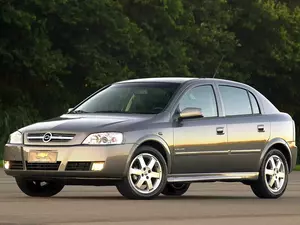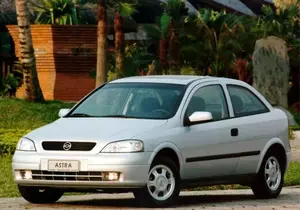
| Vehicle | Precise engine size | Difference from world average | Engine size to consumption ratio | Horsepower from 1 L | Engine size to 100 kg of weight |
|---|---|---|---|---|---|
| 1.8 i |
1.8 L (1796 cc) |
23.4% smaller | - | 61 hp from 1 L | 180 cc to 100 kg |
| 2.0 i 16V |
2 L (1998 cc) |
14.8% smaller | - | 64 hp from 1 L | - |
| 2.0 i 16V |
2 L (1998 cc) |
14.8% smaller | - | 68 hp from 1 L | 167 cc to 100 kg |
| 2.0 i |
2 L (1998 cc) |
14.8% smaller | - | 56 hp from 1 L | 182 cc to 100 kg |
| Vehicle | 1.8 i |
|---|---|
| Precise engine size | 1.8 L (1796 cc) |
| Difference from world average | 23.4 smaller |
| Engine size to consumption ratio | - |
| Horsepower from 1 L | 61 hp from 1 L |
| Engine size to 100 kg of weight | 180 cc to 100 kg |
| Vehicle | 2.0 i 16V |
| Precise engine size | 2 L (1998 cc) |
| Difference from world average | 14.8 smaller |
| Engine size to consumption ratio | - |
| Horsepower from 1 L | 64 hp from 1 L |
| Engine size to 100 kg of weight | - |
| Vehicle | 2.0 i 16V |
| Precise engine size | 2 L (1998 cc) |
| Difference from world average | 14.8 smaller |
| Engine size to consumption ratio | - |
| Horsepower from 1 L | 68 hp from 1 L |
| Engine size to 100 kg of weight | 167 cc to 100 kg |
| Vehicle | 2.0 i |
| Precise engine size | 2 L (1998 cc) |
| Difference from world average | 14.8 smaller |
| Engine size to consumption ratio | - |
| Horsepower from 1 L | 56 hp from 1 L |
| Engine size to 100 kg of weight | 182 cc to 100 kg |

| Vehicle | Precise engine size | Difference from world average | Engine size to consumption ratio | Horsepower from 1 L | Engine size to 100 kg of weight |
|---|---|---|---|---|---|
| 1.8 i |
1.8 L (1796 cc) |
23.4% smaller | - | 61 hp from 1 L | 163 cc to 100 kg |
| 2.0 i |
2 L (1998 cc) |
14.8% smaller | - | 56 hp from 1 L | 182 cc to 100 kg |
| 2.0 i 16V Sport |
2 L (1998 cc) |
14.8% smaller | - | 68 hp from 1 L | 167 cc to 100 kg |
| 2.0 TDi |
2 L (1995 cc) |
15% smaller | - | 51 hp from 1 L | 153 cc to 100 kg |
| 2.0 i 16V |
2 L (1998 cc) |
14.8% smaller | - | 64 hp from 1 L | 182 cc to 100 kg |
| Vehicle | 1.8 i |
|---|---|
| Precise engine size | 1.8 L (1796 cc) |
| Difference from world average | 23.4 smaller |
| Engine size to consumption ratio | - |
| Horsepower from 1 L | 61 hp from 1 L |
| Engine size to 100 kg of weight | 163 cc to 100 kg |
| Vehicle | 2.0 i |
| Precise engine size | 2 L (1998 cc) |
| Difference from world average | 14.8 smaller |
| Engine size to consumption ratio | - |
| Horsepower from 1 L | 56 hp from 1 L |
| Engine size to 100 kg of weight | 182 cc to 100 kg |
| Vehicle | 2.0 i 16V Sport |
| Precise engine size | 2 L (1998 cc) |
| Difference from world average | 14.8 smaller |
| Engine size to consumption ratio | - |
| Horsepower from 1 L | 68 hp from 1 L |
| Engine size to 100 kg of weight | 167 cc to 100 kg |
| Vehicle | 2.0 TDi |
| Precise engine size | 2 L (1995 cc) |
| Difference from world average | 15 smaller |
| Engine size to consumption ratio | - |
| Horsepower from 1 L | 51 hp from 1 L |
| Engine size to 100 kg of weight | 153 cc to 100 kg |
| Vehicle | 2.0 i 16V |
| Precise engine size | 2 L (1998 cc) |
| Difference from world average | 14.8 smaller |
| Engine size to consumption ratio | - |
| Horsepower from 1 L | 64 hp from 1 L |
| Engine size to 100 kg of weight | 182 cc to 100 kg |